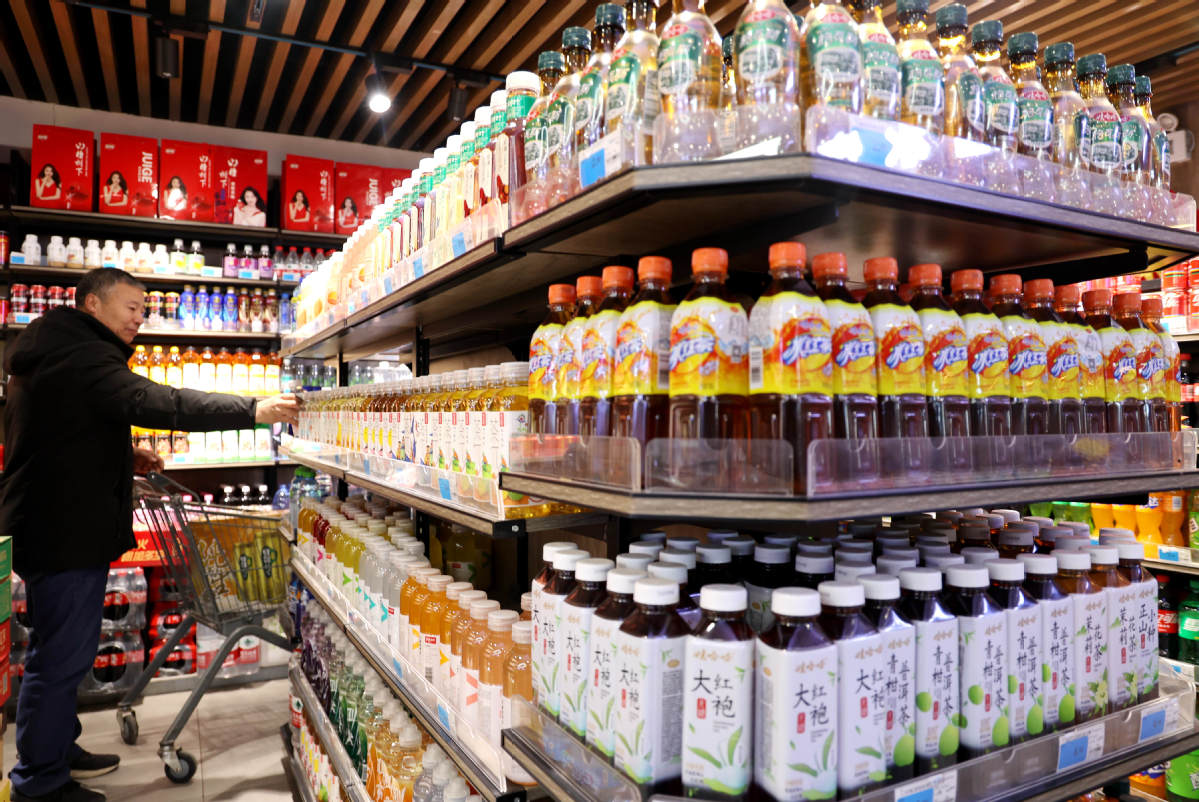Urban fast-moving consumer goods sales show uptrend


China's urban fast-moving consumer goods market recorded a 1.2 percent year-on-year sales increase in the fourth quarter, bringing full-year growth to 1.7 percent, according to Kantar Worldpanel's latest report.
The overall market remained stable, with notable shifts across product categories, regional performance and retail formats, said the report.
The beverage sector emerged as the strongest performer, posting over 7 percent growth in 2024.Meanwhile, the personal care category remained in decline, though the contraction eased in the fourth quarter.
Dairy products continued to face significant growth pressure, reflecting shifting consumer demand and competitive market dynamics.
Regionally, all areas except South China posted positive growth. Smaller cities, particularly county and town-level markets, played a crucial role in driving FMCG expansion. As urbanization accelerates, these markets are expected to fuel further demand.
Modern retail channels, including hypermarkets, supermarkets and convenience stores, saw a slight 0.4 percent decline in the fourth quarter, primarily due to the underperformance of large-format stores, said the report.
The rise of discount retailers and the growing strength of online channels, particularly instant retail services, contributed to the penetration losses of convenience stores, especially in southern China.
Hema Fresh, the supermarket chain of Alibaba Group, led growth among the top 10 retailers, expanding its market share by 0.4 percentage points year-on-year in the fourth quarter, driven by aggressive store expansion and business diversification. Walmart and Spar also saw gains. Walmart Group's fourth quarter market share rose to 5.1 percent versus 4.6 percent a year prior.
Large-format retailers have seen stable growth, despite facing mounting challenges in attracting more foot traffic. To counteract this trend, businesses are focusing on product optimization, health-conscious offerings and immersive in-store experiences. Upgraded store layouts and personalized shopping environments are becoming key strategies.
Several leading retailers, including Yonghui Supermarket and Better Life, have revamped store formats, emphasizing fresh produce, private-label development and value-added services.
Meanwhile, regional players in Henan province — such as Pangdonglai, Dennis and Dazhang Group — have leveraged deep local market insights and diversified retail networks to strengthen their positions.
Consumer demand for speed and convenience fueled a surge in instant retail, with the nearby warehouse model achieving over 26 percent annual sales growth. Retailers across various formats accelerated investment in fast delivery services.
Sam's Club and Hema expanded their warehouse networks, while Walmart partnered with Meituan for instant delivery. Pupu Supermarket reported 7 percent year-on-year growth, while Xiaoxiang Supermarket under Meituan expanded to 15 cities, leveraging promotions and private-label strategies.
E-commerce giants also capitalized on the instant retail trend. Taobao added an "Hourly Delivery "feature, Dada Group integrated into JD.com's ecosystem with "JD Speed Delivery," and JD's 7Fresh optimized its logistics to drive strong online sales growth.
Discount retailing remained a key industry trend in 2024. Kantar Worldpanel data showed that the penetration rate of discount snack stores surpassed 30 percent, with strong growth in lower-tier markets.
Aldi expanded its presence in Shanghai, increasing its penetration rate by 9 percentage points and is now eyeing the broader Yangtze River Delta. More than a quarter of families in Shanghai surveyed purchased from Aldi, according to the report. Domestic retailers such as Hema and Yonghui are also investing in discount formats.
Despite stable overall market shares, e-commerce platforms are engaged in aggressive price competition. Taobao and Tmall retained the lead but lost 3 percentage points in market share, while Douyin surged ahead of Pinduoduo to become the second-largest e-commerce platform, capturing 49 percent of urban households in China.
Douyin's focus on local services and interactive shopping experiences has strengthened user engagement, while Xiaohongshu, a Chinese lifestyle platform, expanded into more urban markets.
As China's retail landscape continues to evolve, businesses must adapt to shifting consumer behaviors. The rise of community stores, instant retail and discount channels will redefine market dynamics in the coming years, said the report.




































